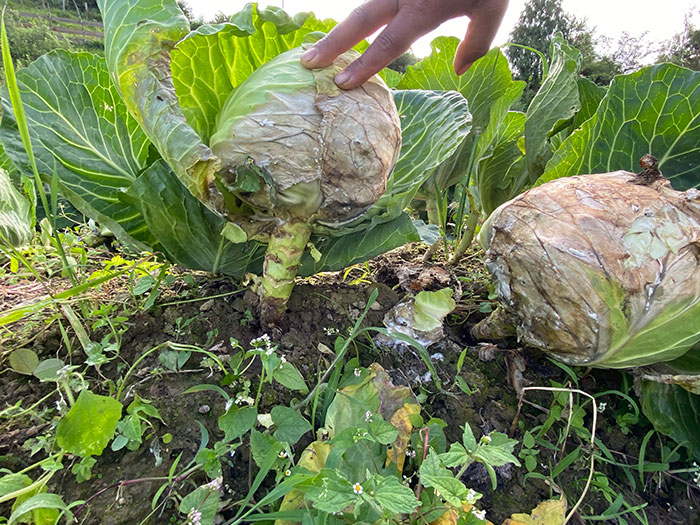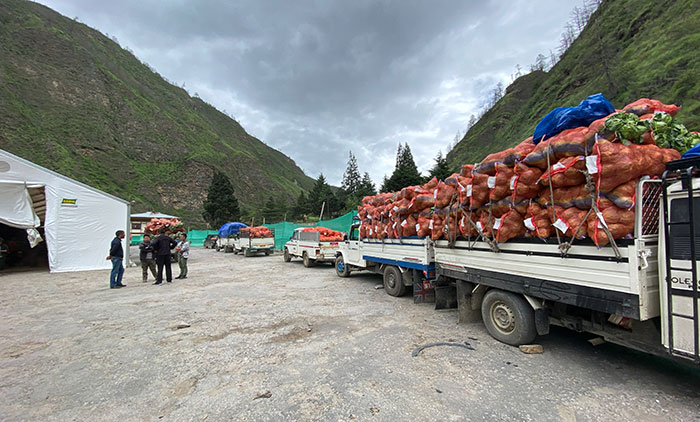Phub Dem | Paro
In Wanakha and Zursuna in Paro, cabbages grown for export are rotting in the fields.
Tshering Wangdi usually sends truckloads of cabbages to the auction yard in Phuntshoing. The supply runs from July to October, which is worth Nu 700,000.
It is a different story this year. He blames it all on Covid-19. He is still waiting to sell cabbages at the Food Corporation of Bhutan (FCBL) depot in Damchu.
The depot started buying vegetables from four dzongkhags—Haa, Paro, Thimphu, and Chukha.
Due to excess supply of cabbage, the depot along with dzongkhag agriculture officials and local leaders have decided on a buy-back ceiling of just 1,200 sacks of cabbages a day from the four dzongkhags.
Zursuna-Wanakha Tshogpa, Jampel Dorji, said that the quota was divided among five chewogs.
Another farmer, Tshering Zam, said: “Forget about profit, I am worried whether I would be able to pay my helpers. I have invested about Nu 100,000 in buying fertilizers and seeds.”

Farmers in Naga gewog say about 80 percent of cabbages have gone to waste
The farmers of Naja gewog are known for the mass cultivation of cabbages.
Every household grows cabbage as their source of income. There are about 130 households in Zursuna- Wanakha chiwog.
Dema, a farmer, said that only 25 percent could be harvested. She used to produce at least 150 sacks of cabbage, but this year it is only 70. “All my hard word has been in vain.”
Farmers of Paro grow cabbage twice in a year. But this year, farmers say they won’t grow cabbage again. “I am going to grow buckwheat and millet from now on.”
The depot’s in charge Sangay Tshering said the export of vegetables was stopped due to curfew in some states in India.
He said that ceiling was maintained for cabbage as the depot could buy only a limited number as per the demand, adding that depot might increase the buy back quota if the situation improves.
FCB too is faced with challenge to export cabbage.
For instance, FCB bought cabbages worth Nu 3.2million from the farmers. But they dumped the cabbages after paying Nu 15,000 per truck to the thromde. “We tried selling it to the local market, but there are no buyers.”
Other than cabbage, the FCB is buying vegetables such radish, carrot, and beetroot from the four dzongkhags.
Paro’s dzongkhag agriculture officer, Tandin, said that the dzongkhag did not promote cabbage cultivation. He said that annually farmers lost about 40 percent of cabbage due to delay in harvest. “And they perish very quickly.”
Tandin said that dzongkhag in collaboration with the National Post Harvest tried exploring alternatives. Drying cabbage wasn’t found viable.
He said that the local demand for cabbage was negligible.


